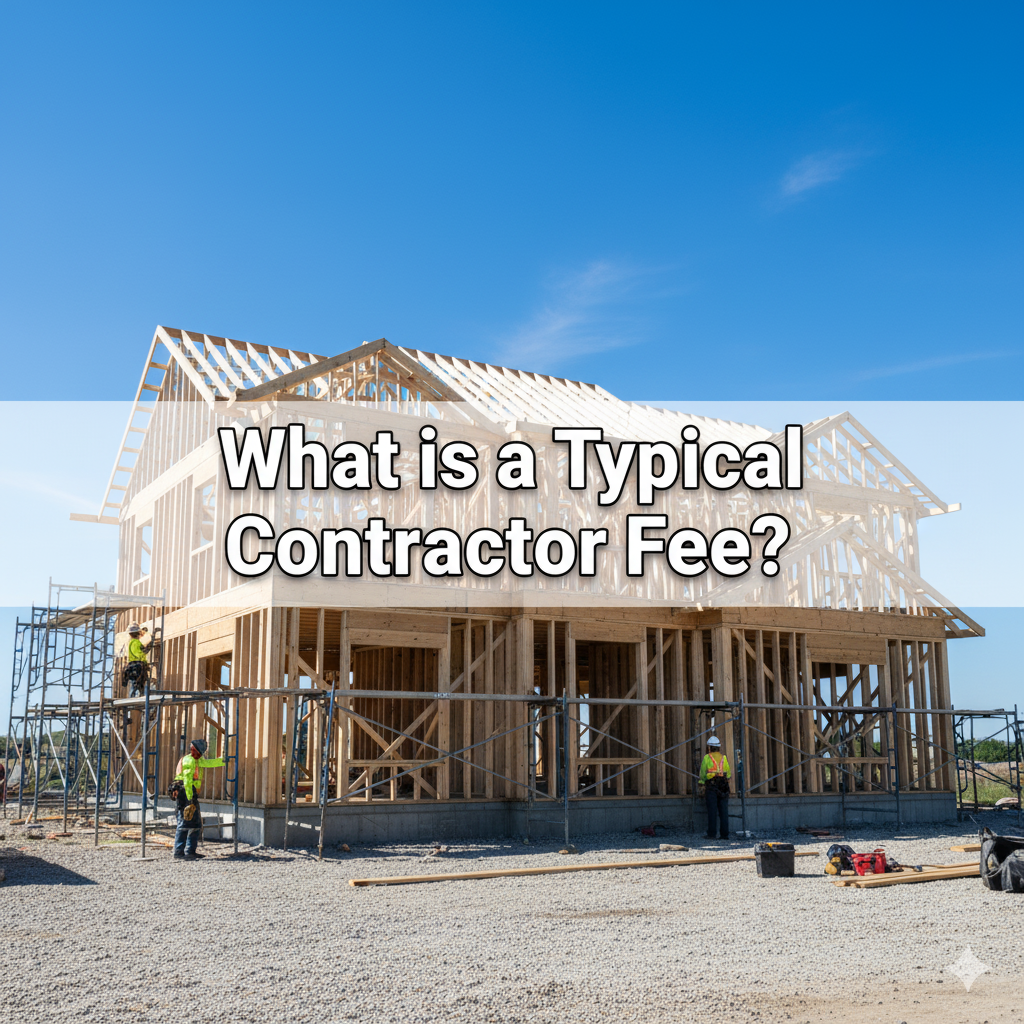
What is a Typical Contractor Fee?
Building or renovating a home is one of the largest investments most people will ever make. Beyond choosing designs, materials, and finishes, one of the most important questions homeowners often ask is: “What does a contractor actually charge?”
Understanding contractor fees is essential before starting any project. These costs can vary, but they’re always tied to the expertise, planning, and management a contractor provides. Whether you’re hiring for a small remodeling project or planning to construct your dream home in Fremont, NE, knowing how contractor fees work helps you make better financial decisions.
In this detailed guide, we’ll explain how contractors set their fees, what those fees cover, and how you can budget for them.
Defining Contractor Fees
A contractor fee is not the cost of materials or the labor of the workers—rather, it is the charge for the contractor’s management, oversight, and expertise.
Think of a contractor as the project manager who ensures that each stage of construction is completed correctly, legally, and on schedule. The fee compensates them for taking responsibility for the job, coordinating subcontractors, securing permits, and making sure the work passes inspections.
How Are Contractor Fees Calculated?
There isn’t a single method. Contractors use different pricing structures depending on the size and complexity of the job. The four most common fee structures are:
1. Percentage of Project Cost
This is the most widely used method. The contractor’s fee usually falls between 10% and 20% of the project’s total cost. For instance, if you’re building a home valued at $300,000, the contractor fee could range from $30,000 to $60,000.
2. Flat Fee
For small, predictable jobs, a contractor might charge a flat fee. This gives the homeowner clarity on the cost but may not work well for complex projects with unexpected challenges.
3. Cost-Plus Arrangement
Under this structure, you pay the actual cost of labor and materials plus an additional agreed-upon fee or percentage for management and profit. This method offers transparency but requires careful monitoring.
4. Hourly Rate
Rarely used for full home construction, but sometimes applicable for consultations, troubleshooting, or design adjustments.
Why Do Fees Vary?
Contractor fees are not one-size-fits-all. A variety of factors can affect what you pay:
- Size of the project – Larger projects take more time, planning, and management.
- Complexity – Custom designs, luxury finishes, or unusual structural requirements demand more oversight.
- Location – In Fremont, NE, construction fees may be more affordable than in major cities, but material and labor market changes still influence costs.
- Experience level – Working with the Best House Construction Contractor in Fremont may cost slightly more upfront but typically leads to fewer problems and better results.
- Timeline – Projects that need to be completed faster than usual often result in higher fees.
- Licensing and insurance – Fully insured contractors with strong safety records usually charge more, but this protects homeowners in case of accidents.
What Contractor Fees Cover
It’s a common misconception that contractor fees are “extra charges.” In reality, these fees ensure that your project runs smoothly. Typical contractor responsibilities covered by the fee include:
- Planning and scheduling each stage of the build
- Managing subcontractors like electricians, plumbers, and roofers
- Obtaining permits and arranging inspections
- Coordinating material orders and deliveries
- Ensuring safety and compliance with building codes
- Overseeing quality control so every task is completed correctly
- Handling unexpected issues or delays
Without a qualified contractor, you would be left coordinating all of these moving parts yourself—a nearly impossible task for most homeowners.
Average Fee Ranges in Fremont, NE
While fees vary, homeowners in Fremont can generally expect the following:
- Small remodels under $50,000 – 15%–25% contractor fee
- Medium projects ($50,000–$200,000) – 12%–20%
- Full home builds ($250,000+) – 10%–18%
For example, if you’re building a $250,000 home, the contractor’s fee would likely fall between $25,000 and $45,000.
The Value of Paying Contractor Fees
It may be tempting to look for the cheapest bid, but this can lead to major problems. Experienced contractors charge fairly because they bring real value:
- Accurate timelines – Projects are less likely to be delayed.
- Quality workmanship – Skilled subcontractors want to work with reputable contractors.
- Reduced risk – Licensed and insured contractors protect you from liability.
- Peace of mind – You don’t have to stress about daily supervision.
This is why working with companies like TSR Construction—considered by many as the Best House Construction Contractor in Fremont—is worth the investment.
Tips for Negotiating Contractor Fees
Although fees are relatively standard, you still have room to protect your budget:
- Get multiple quotes to compare.
- Request detailed contracts that show what’s included.
- Avoid large upfront payments—payments should align with project milestones.
- Focus on value, not just price. A slightly higher fee often means fewer mistakes and higher quality.
Final Thoughts
A contractor fee is not just another line on your budget—it’s an investment in expertise and accountability. Whether you’re planning a kitchen remodel, adding new rooms, or building a brand-new home in Fremont, NE, understanding contractor fees helps you budget effectively and choose wisely.
By working with experienced professionals like TSR Construction, you gain a partner who ensures your project is completed on time, within budget, and to the highest standards.
10 FAQs About Contractor Fees
1. What is the average contractor fee in Fremont, NE?
Typically, 10–20% of the total project cost, depending on scope and size.
2. Do contractor fees cover materials and labor?
No. Materials and labor are billed separately; fees cover management, scheduling, and oversight.
3. Why do some contractors charge more than others?
Reputation, experience, insurance, and efficiency often lead to higher—but justified—fees.
4. Can I pay a flat fee instead of a percentage?
Yes, for smaller projects. Larger jobs usually work best with percentage-based fees.
5. Are contractor fees negotiable?
Sometimes. You may negotiate percentages or request more detailed service breakdowns.
6. What happens if the project runs over budget?
Unless specified in the contract, extra costs are usually the homeowner’s responsibility.
7. Are permit costs included in contractor fees?
Sometimes. Check your contract carefully to confirm what is included.
8. How can I ensure transparency in contractor billing?
Request itemized invoices and milestone-based payment schedules.
9. Should I choose the cheapest contractor?
Not always. The cheapest option can lead to costly mistakes or poor quality work.
10. Why choose TSR Construction?
Because TSR Construction is a trusted name in Fremont, known for quality, honesty, and reliability in every project.
All Categories
Recent Posts
Can You Build a House for $500k?
Can You Build a House for $80,000?
How Much Would It Cost to Build a 30×30 House?
Tags
MON-SAT 8:00-9:00
+91 69 863 6420



